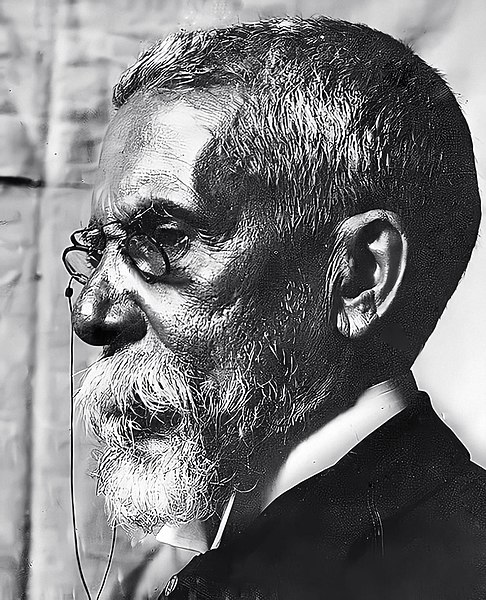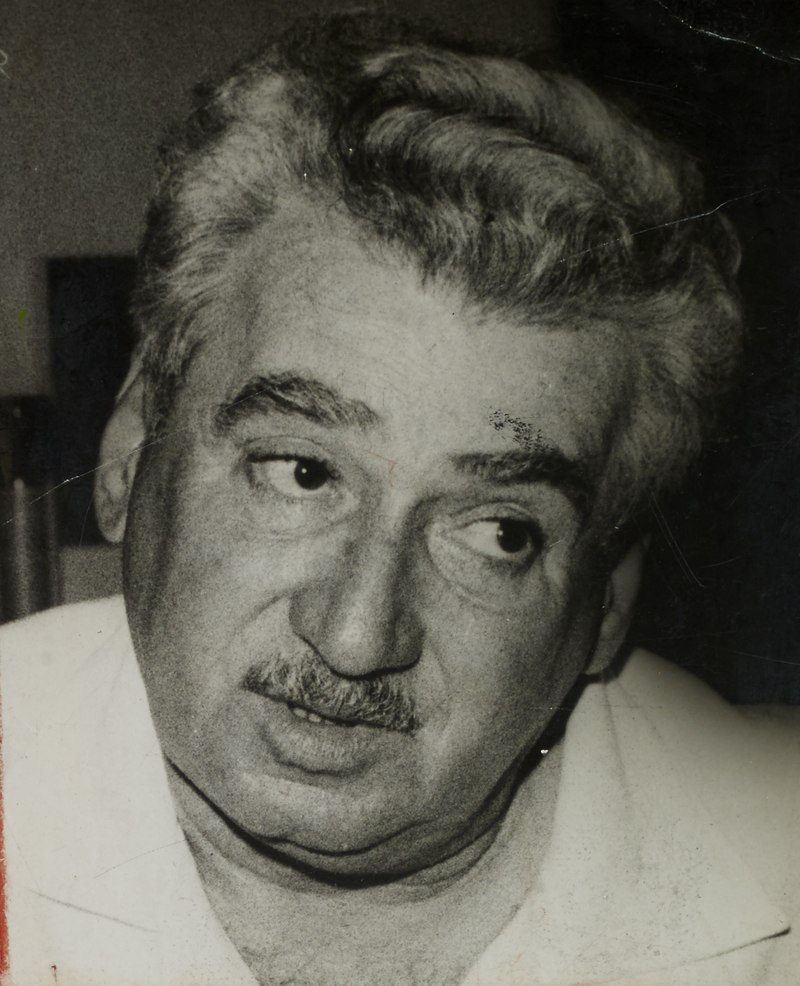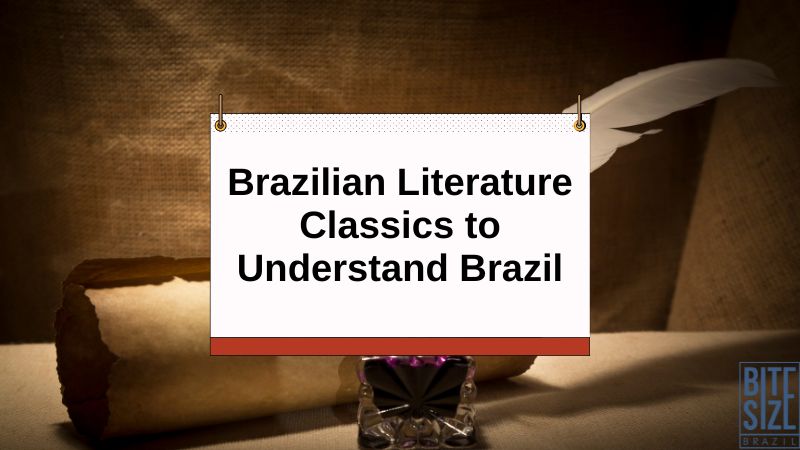This article contains affiliate links. I many make a small commission if you decide to buy, but that doesn't influence my opinion on those books, and it won't increase the price for you. That's actually how I keep this website running.
When it comes to literature, Brazil boasts a rich history of literary masterpieces that have captured the hearts and minds of readers... in Brazil.
And that's the case because, unfortunately, not much of our literature can be found in translation. Yet, Brazilian literature classics remain integral to the country's cultural heritage and literary tradition.
In this article, we will take a closer look at the top Brazilian books in English that you should not miss if you'd like to deepen your knowledge of the country and its culture.
We will discuss the importance of classic Brazilian literature, provide brief summaries of some of the most notable works and authors, and explore the themes and literary movements that define the Brazilian literary canon.
Whether you're a seasoned reader or new to Brazilian literature, this guide will offer valuable insights into the world of Brazilian literary culture and heritage.
(And before you ask: Paulo Coelho isn't here, but he'll be in our future article about our best Brazilian modern writers!)
Classic Brazilian Literature Works
Brazilian literature classics have had an immense impact on literature worldwide. These works tell stories that reflect Brazilian culture, identity, and history. Below are some of the best Brazilian novels that you shouldn't miss:
"The Posthumous Memoirs of Bras Cubas"
"The Posthumous Memoirs of Bras Cubas" by Machado de Assis is a masterpiece of Brazilian literature. The novel follows the life and death of Bras Cubas (death first), a wealthy and privileged man who reflects on his life and experiences from beyond the grave. The novel is a satirical and witty commentary on Brazilian society and politics and explores themes such as love, death, and class. The founder of the Brazilian Academy of Letters Machado de Assis is widely regarded as one of the greatest writers in Brazilian literature and one of the few to be considered and studied abroad.
"Dom Casmurro"
"Dom Casmurro" is a novel by Machado de Assis that tells the story of Bento Santiago, a wealthy man who suspects that his wife is having an affair with his best friend. The novel is a complex and nuanced exploration of jealousy, betrayal, and the nature of reality. The contribution of Machado de Assis to Brazilian culture and literature is hard to overlook, and many of his books became classics that students must learn to this day.
"The Devil to Pay in the Backlands"
"The Devil to Pay in the Backlands" by João Guimarães Rosa is considered one of the most significant works in the Portuguese language. The novel tells the story of Riobaldo, a bandit who is torn between his loyalty to his band and his desire for a peaceful life. The novel is a poetic and philosophical exploration of Brazilian culture, identity, and history. Guimaraes Rosa's writing style is known for its lyrical and innovative use of language.
"Os Sertões" ("Rebellion in the Backlands")
"Os Sertões" by Euclides da Cunha is a significant piece of Brazilian literature, presenting an intricate blend of narrative genres, including history, sociology, and literature. The book chronicles the War of Canudos, a conflict in the late 19th century between the Brazilian government and a group of religious fanatics in the northeastern backlands of Bahia. Cunha's detailed and evocative description of the land, the people, and the brutal conflict provides an essential analysis of Brazil's complexities, making it an indispensable work in Brazilian literature.
"Captains of the Sands"
"Captains of the Sands" by Jorge Amado follows the lives of a group of orphaned and abandoned street children in the city of Salvador, Bahia. The novel explores their survival struggles and encounters with love, friendship, and betrayal. This work is noted for its social criticism, compassionate portrayal of the underprivileged, and its authentic evocation of Brazilian culture. The movie's soundtrack became a classic in Soviet Russia, and to this day people recognize the song.
"Iracema"
"Iracema" by José de Alencar is a fundamental novel in Brazilian literature that romanticizes the country's indigenous people and natural landscapes. The narrative follows the love story between the indigenous woman Iracema and the Portuguese colonizer Martim. With poetic and romantic language, Alencar presents a unique vision of Brazil's early colonial period, making it a classic worth reading.
"The Violent Land"
"The Violent Land" by Jorge Amado is a classic novel that tells the story of two powerful cacao plantation families in the state of Bahia. It showcases the greed, lust, and violence that can be found in society, with a backdrop of the captivating landscapes of Brazil. The novel's narrative is as powerful and rich as the land it describes, making it a standout in Brazilian literature.
"Barren Lives"
"Barren Lives" by Graciliano Ramos is a remarkable novel that narrates the struggles of a poor family in the harsh, drought-stricken northeast of Brazil. The novel is a powerful social commentary on Brazilian society's disparity between the rich and the poor. The grim reality depicted by Ramos is contrasted with his poetic and delicate writing style, making this work a classic of Brazilian literature. A paragraph in this book always makes me cry, and it's one of the most moving passages in Portuguese.
In this scene, the dog Baleia is critically wounded by her owner, Fabiano. Fabiano shoots Baleia (she's sick and suffering, and he can't afford treatment). After she loses blood, she feels weaker and weaker, then...
"Baleia wanted to sleep. She would wake up happy in a world full of preás [a type of rodent]. And she would lick the hands of Fabiano, a Fabiano larger than life. The children would roll around with her in a huge yard, in a massive pigpen. The world would be entirely full of preás."
"Macunaíma"
"Macunaíma" by Mário de Andrade is one of the pillars of Brazilian modernist literature. The novel tells the story of the anti-hero Macunaíma, born in the Brazilian jungle, a character full of contradictions who experiences numerous adventures in an urban environment. This novel's innovative narrative, language use, and approach to Brazilian folklore and culture make it a significant contribution to Brazilian literature. There is even a movie based on this novel, but I prefer the novel.
Some classic Brazilian authors you should know if you don't want to read from the list.
Brazilian literature is rich in history and has produced many classic authors, some of whom are celebrated worldwide. This section will discuss three of the most prominent classic Brazilian authors.
Machado de Assis

Machado de Assis is among the most influential and celebrated Brazilian writers ever. Born in Rio de Janeiro in 1839, Assis is known for his clear and innovative writing style, complex and deep characters, and satirical wit. His works explore themes such as class, race, and identity, not being pamphletary but rather subtle, and his writing style is often called "realism with a twist."
Clarice Lispector

Clarice Lispector is a Brazilian writer who is widely regarded as one of the greatest female writers of the 20th century. Born in Ukraine in 1920, Lispector immigrated to Brazil as a child. Her works are known for their poetic language and introspective themes. Some of her most famous works include "The Hour of the Star" and "Near to the Wild Heart." Her writing explores the human condition and the complexities of existence. Her style reminds me of Virginia Woolf's; although poetic, her style can be inaccessible to some.
Jorge Amado

Jorge Amado is a Brazilian writer who is known for his colorful depictions of Brazilian culture and society. Born in Bahia in 1912, Amado wrote numerous novels and short stories that explore themes such as love, race, and politics. Some of his most famous works include "Gabriela, Clove, and Cinnamon" (a smashing hit on TV too) and "Dona Flor and Her Two Husbands" (another hit, becoming known and celebrated to this day). His writing style is characterized by his use of vivid characters and lively depictions of Brazilian life with a sometimes terse use of language.
These three classic Brazilian authors have contributed significantly to the development of Brazilian literature, and their works continue to be celebrated and studied today. If you want to get started and need to have a diverse view of our literature, these three provide manifold themes and stories.
"Why Read Classic Brazilian Literature?"
You can surely understand Brazil by living here. After all, nothing beats being born here. But even Brazilians who have spent their life in Brazil don't know much about their own history if they don't study.
And our classic literature encapsulates and crystallizes common themes and issues that have been a staple of life in Brazil since this country was founded.
They reflect Brazil's diverse historical, political, and social landscape. Reading classic Brazilian literature can profoundly impact personal growth and development, as it provides a window into the country's rich cultural heritage and literary tradition.
In essence, reading classic Brazilian literature is a way to broaden your horizons and expand your view of our culture. It is an opportunity to explore different perspectives and to enrich your understanding of the world. Whether you're a literature enthusiast or a casual reader, reading Brazilian literature is an experience that is not to be missed.
The impact of classic Brazilian literature on contemporary society and culture
Anyone who reads Dom Casmurro knows what the name Capitu evokes: betrayal, seduction, cheating... and that's why so many literary works and TV shows use this name. They capitalize on the reputation the novel originally garnered.
And if you know read anything like Grandes Sertões, you know a little about how life in the Northeast is. You'll have a much better chance at bonding with someone from that region, even if that person hasn't experienced the same as in the novel.
Much of our everyday experience is shaped by our literature; we may not be aware of it, but we feel the impact of stories and their themes (I guess Jorge Amado is a stand-out in modern culture since his works have been adapted to TV with great success, and many people know him). In addition, our literature has challenged social norms and conventions by exploring complex themes and ideas that are often taboo (such as homosexuality at a time it was taboo) or controversial (such as political discussions like in the Bruzundangas). By doing so, they have helped to challenge and reshape Brazilian society and culture, giving a voice to marginalized communities and shedding light on important social issues.
A bit about the Brazilian literary tradition
The Brazilian literary tradition is a diverse and rich field rooted in the colonial period. Various cultural influences have shaped this tradition, including European, African, and indigenous cultures.
Over the years, Brazilian literature has gone through various movements and periods, including romanticism, modernism, and post-modernism.
Literature in the Colonial Period and the Romanticism
In the colonial period, the Portuguese heavily influenced Brazilian literature, focusing on religious themes. During the 19th century, Romanticism emerged in Brazil, and poets such as Gonçalves Dias and Álvares de Azevedo explored themes such as patriotism and national identity (with José de Alencar as a prominent author of this period with his Iracema).
Modernism
In the 20th century, modernism (marked by the Week of Modern Art of 1922) emerged as a reaction against the traditional literary forms of the past. Modernist writers such as Oswald de Andrade and Mário de Andrade experimented with new forms and styles, drawing on Brazilian popular culture and folklore.
Key Themes in Classic Brazilian Literature
Classic Brazilian literature explores a wide range of themes that are relevant to Brazilian society and culture. These themes include social and political issues, identity and race, and love and relationships.
Social and political issues are a prominent theme in Brazilian literature. Many classic Brazilian works address issues such as poverty, corruption, and inequality, and explore the struggles of the working class. For example, in "The Posthumous Memoirs of Bras Cubas," Machado de Assis satirizes the Brazilian elite and their insensitivity to the plight of the poor. And the apex of Brazilian social commentary lies on the pages of Bruzundangas (didn't find a translation, unfortunately), my favorite book by author Lima Barreto.
Identity and race are also important themes in Brazilian literature.
The country's history of colonization and slavery has profoundly impacted its social and cultural makeup, and many classic Brazilian works explore these themes. For example, Clarice Lispector's "Near to the Wild Heart" explores the inner life of a young woman of mixed race, grappling with questions of identity and belonging.
Love and relationships are also recurring themes in classic Brazilian literature.
Brazilian authors have explored the complexities of human relationships, from the romantic to the familial. In "Dom Casmurro," Machado de Assis explores the themes of jealousy and betrayal in a love triangle between the protagonist, his wife, and his best friend.
Overall, classic Brazilian literature reflects the country's complex history and culture and continues to be a vital part of its literary heritage.
In conclusion, read and keep reading if you're interested in Brazil
In conclusion, classic Brazilian literature works are essential to the Brazilian cultural heritage and society. By delving into these works, we can gain a deeper understanding of Brazil's rich literary tradition, the universal themes and ideas that are explored in these works, and how they have shaped national identity, influenced artistic movements, and challenged social norms.
Moreover, the impact of classic Brazilian literature on Brazilian society and culture is profound and undeniable. These works have contributed to forming a unique Brazilian national identity, and their influence is evident in a wide range of fields, from politics to art.
We must keep encouraging the reading and studying of classic Brazilian literature to preserve this incredible cultural heritage and pass it down to future generations.
So, if you want to become a true "Brazilian" expert and talk with your friends using our culture, read our plays and short stories and other works by the greatest Brazilian authors!

